
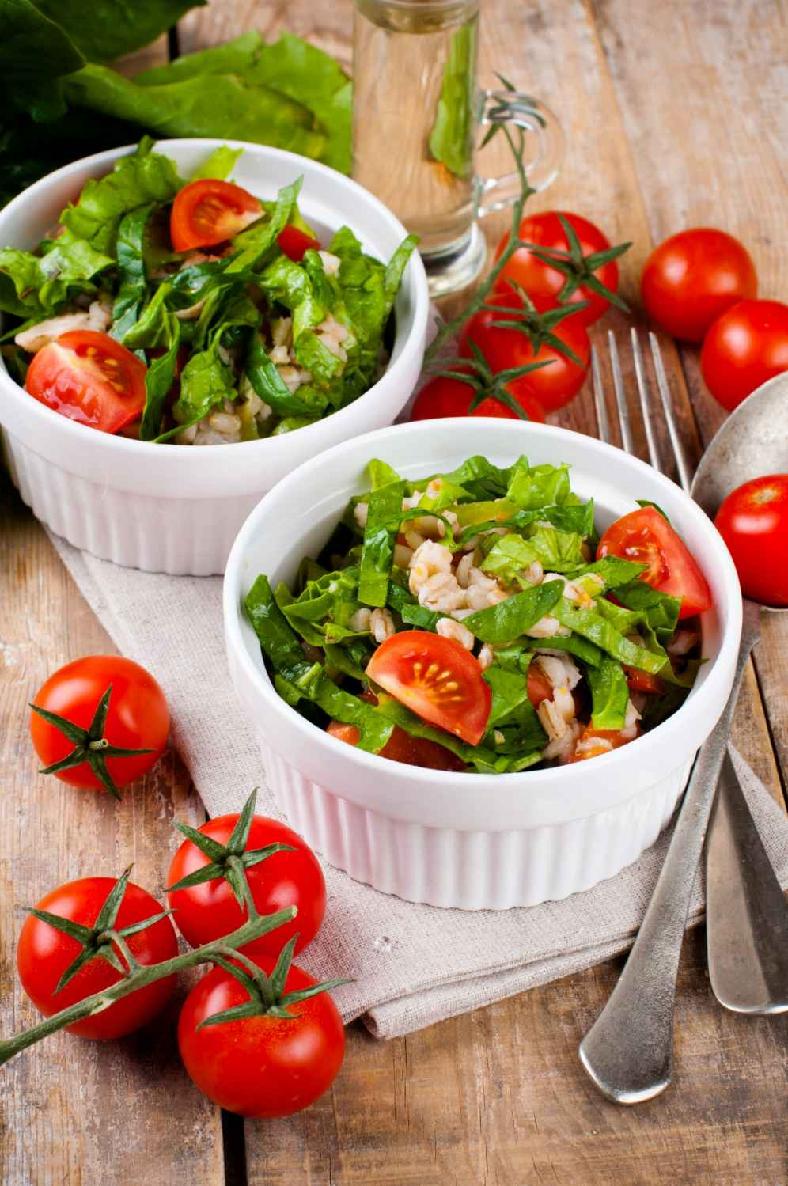
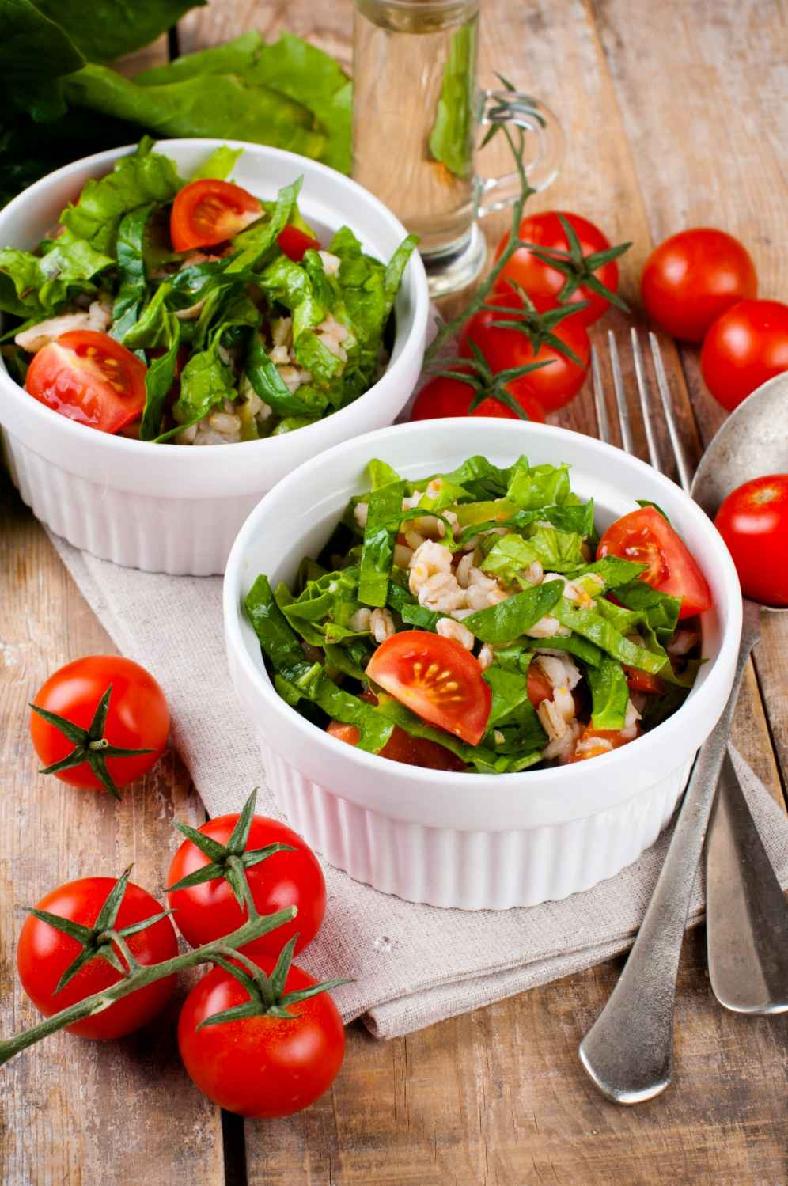 THE 5-INGREDIENT COLLEGE COOKBOOK BY AMY HILL Contents Copyright @2020 by Amy Hill. All rights reserved. No part of this book may be reproduced, stored in a retrieval system, or transmitted in any form or by any means (mechanically, electronically, photocopying, recording, etc) without the prior written permission of the publisher. Additionally, the purchase of this material entitles the buyer to reproduce worksheets for home or classroom use only - not for commercial resale. Reproduction of this book for an entire school is highly prohibited.
THE 5-INGREDIENT COLLEGE COOKBOOK BY AMY HILL Contents Copyright @2020 by Amy Hill. All rights reserved. No part of this book may be reproduced, stored in a retrieval system, or transmitted in any form or by any means (mechanically, electronically, photocopying, recording, etc) without the prior written permission of the publisher. Additionally, the purchase of this material entitles the buyer to reproduce worksheets for home or classroom use only - not for commercial resale. Reproduction of this book for an entire school is highly prohibited. 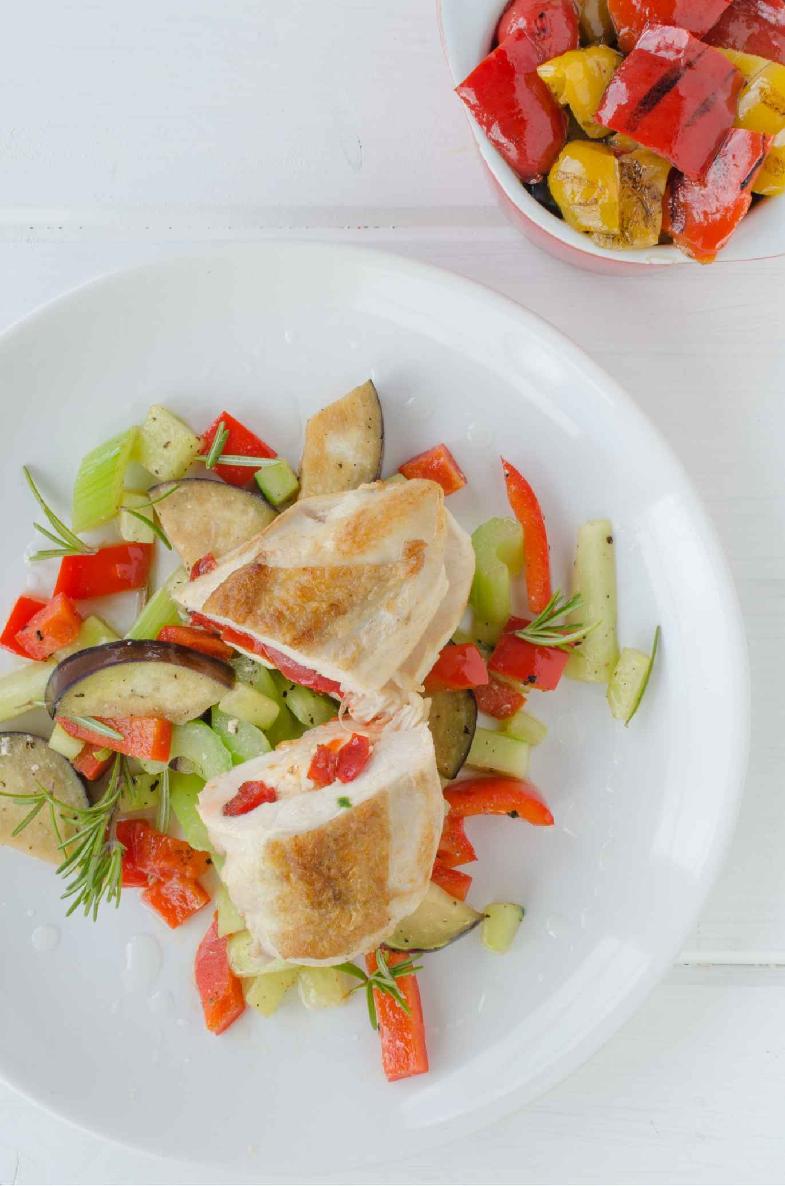
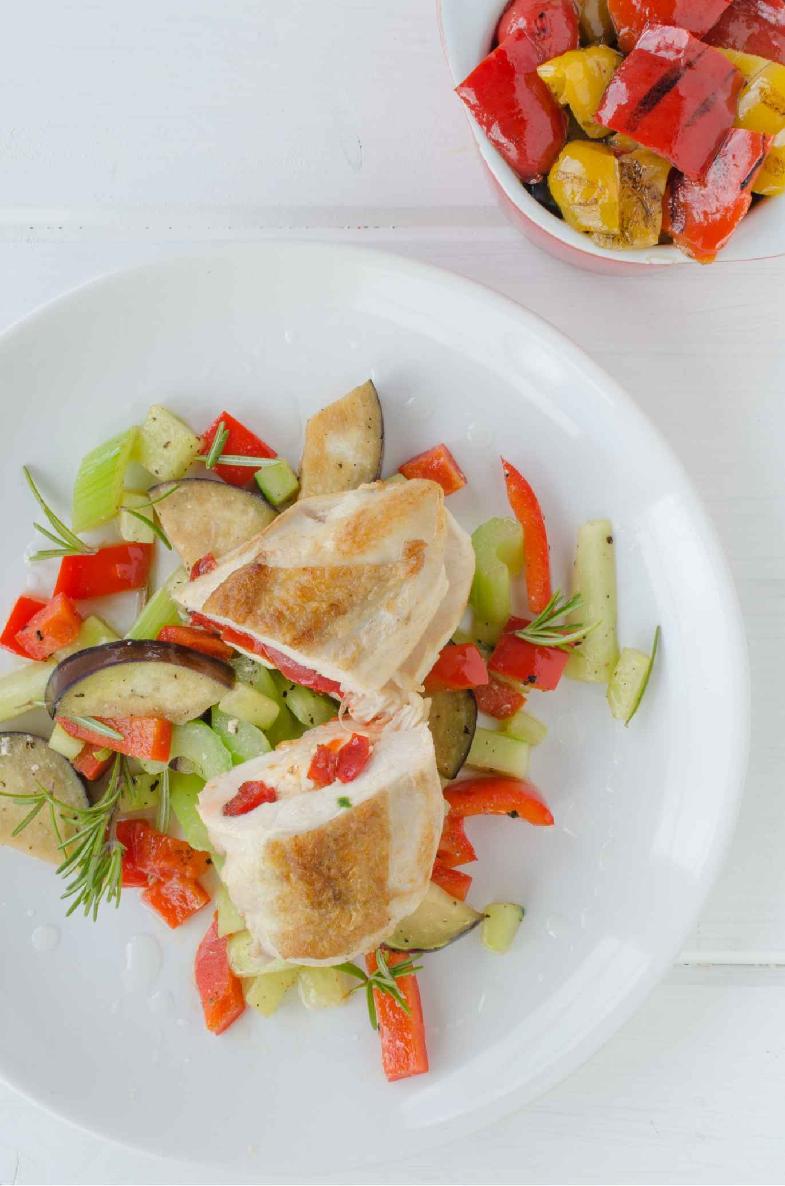
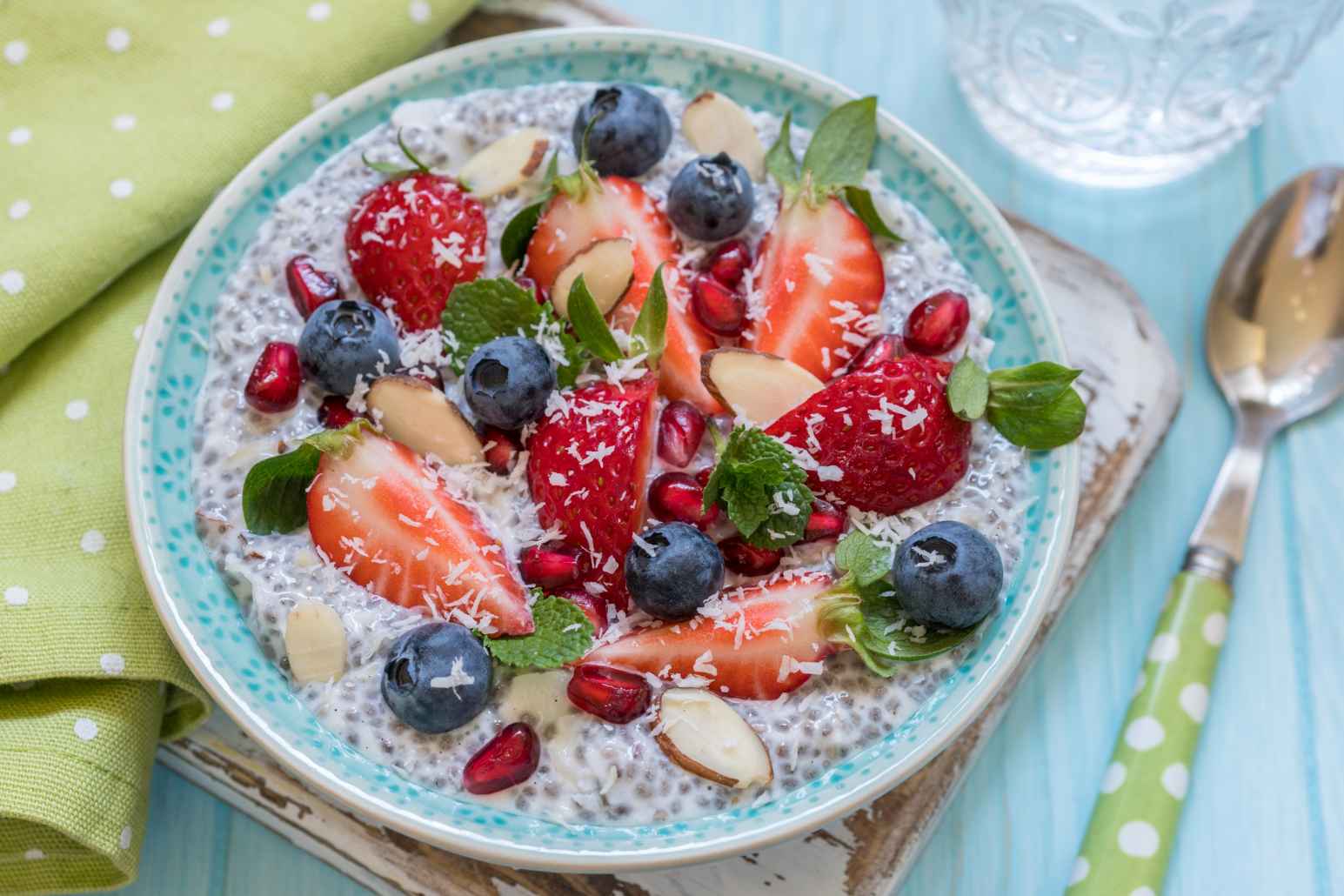 Chapter 1Cooking on a Budget Most healthy diets are about healthy foods and healthy eating habits. However, there is one problem.
Chapter 1Cooking on a Budget Most healthy diets are about healthy foods and healthy eating habits. However, there is one problem.
Healthy foods are usually more expensive than regular foods. Does this mean healthy eating should be the prerogative of the rich? Healthy foods are more expensive for a reason. They are usually higher in nutrients and can help you feel full for longer. Or, the core ingredients are more expensive, e.g. almond flour vs grain flour. Besides, they are often produced in more labor-intensive ways.
Then, some of the healthy foods, are imported from far-away countries, e.g. tapioca flour, etc When you study most healthy recipes, you'll see that many of them are based on pricey ingredients. So, is it possible to cook and eat on a budget? Of course, it is, but it takes some forward planning and careful budgeting. Tips for Creating A Cooking Plan on ABudget1.Buy in bulk If you decide to start saving on groceries, the first thing to do is start buying in bulk, especially at places like Costco, Walmart, Sam's Club, etc. Stock up on non-perishables, such as coconut milk, seasonings, healthy oils, dried or frozen foods, etc. 2.Cook in bulk Batch cooking means you always have something to eat if you don't feel like cooking. 2.Cook in bulk Batch cooking means you always have something to eat if you don't feel like cooking.
Besides, cooking in bulk saves both time and money. You cook from ingredients that are on sale or are in season at the moment, and you prepare several dishes that you can eat throughout the week. 3.Look for discounts Many stores offer special deals on foods near the expiration date. You can save a lot this way so get into the habit of paying attention to flyers and in-store promotional materials. 4.Stick to your shopping list To make sure you don't buy on impulse and also to ensure you buy everything you need for your meals, never go shopping without a shopping list. And stick to it! 5.Shop online Shopping online can save a lot of money, especially on many healthy foods such as nuts, almond four, coconut flour, chia seeds, etc.
Amazon is a good place to start but you can also check Thrive Market, Whole Foods, Nuts.com, and ButcherBox. 6.Create your menu with affordable foods in mind If your budget is very tight, find out what the price of foods you should be eating most of are, eg broccoli, cauliflower, cabbage, spinach, avocado, etc. Then look for recipes that are based on these foods. Whenever possible, buy frozen instead of fresh produce because you can save a lot that way. 7.Analyze your grocery bill Get into the habit of checking your grocery bill on a weekly or monthly basis to make sure it does not include items that shouldn't be there, eg latte, energy drinks, expensive wine, unhealthy snacks, etc. Cook from scratch First of all, start buying whole vs chopped/peeled/washed foods. Cook from scratch First of all, start buying whole vs chopped/peeled/washed foods.
Start making your own salad dressings, sauces, nut butters, soups, etc from scratch. You will save money and avoid the food additives that these foods are full of. Chapter 2Planning Your Weekly Shopping Eating on budget will affect your lifestyle because to live the frugal way, you have to become more organized. You also need to be educated enough to know how to calculate your calories. And if on top of that you want to eat on a budget, you'll have to do even better than that. Budgeting Revolves Around ThreeConceptsPlanning This phase involves collecting recipes you would like to try or creating your own.
Please note, that when living on a budget, you should stay away from fancy meals or meals with lots of ingredients. This is where this book comes in handy. We have created less complicated and highly nutritious and delicious meals that are only 5 ingredients. The next step is to create a weekly menu and work out what ingredients you'll need for those meals. 2.Shopping Get into the habit of never going shopping without a shopping list, especially if you're trying to live on a budget. Take into account all the meals you will need to prepare in the following week plus snacks or foods for unexpected visitors.
Shop at discount stores if you are shopping in bulk. Be on the look-out for sales even if that means changing your meal plans for that week. It pays to be flexible when creating a menu and when it comes to fresh fruits and vegetables, eat only what's in season. 3.Meal preparation Although convenience foods are usually very tasty and convenient, such meals are usually much more expensive than home-made ones. However, as cooking from scratch takes a lot of time, try to make your life easier by getting appliances like food processors, crock pots, a vacuum sealing machine, storage containers, etc that will make cooking easier. If you are short of time, cooking in batch will help a lot both in terms of time and money.
Avoid or limit meals that require too many special ingredients, eg coconut, almond or tapioca flour, artificial sweeteners, imported vegetables, etc because these are not cheap. Try to stay away from ingredients available only in health food shops as these are usually more expensive than the same ingredients available from regular shops. To further save on food, buy only the food you know you will eat. We often buy foods we think we should eat because it is healthy, although deep-down we hate such foods. If you want to cook from scratch, or cook in bulk, remember that you'll have to set aside one day a week to cook for the rest of the week. Although spending Sundays in a kitchen may not be your idea of fun, if you're very busy and usually get home late, if you cook in bulk, you'll always have a healthy meal waiting for you even when you come home too exhausted to cook.
It's best to focus on simple meals that do not require a lot of ingredients. One of the ways of saving money without eating the same meals over and over again is to change seasonings instead of ingredients. With the change of spices, you can turn a simple dish into a Chinese stir fry, Indian curry, Hungarian paprikash, Thai-style dish, Italian-style meal, etc. Chapter 3Under $20 a Week Budget
Next page

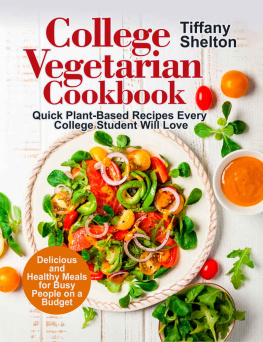
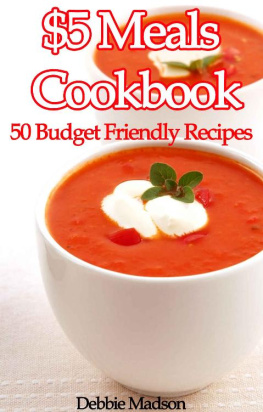



 THE 5-INGREDIENT COLLEGE COOKBOOK BY AMY HILL Contents Copyright @2020 by Amy Hill. All rights reserved. No part of this book may be reproduced, stored in a retrieval system, or transmitted in any form or by any means (mechanically, electronically, photocopying, recording, etc) without the prior written permission of the publisher. Additionally, the purchase of this material entitles the buyer to reproduce worksheets for home or classroom use only - not for commercial resale. Reproduction of this book for an entire school is highly prohibited.
THE 5-INGREDIENT COLLEGE COOKBOOK BY AMY HILL Contents Copyright @2020 by Amy Hill. All rights reserved. No part of this book may be reproduced, stored in a retrieval system, or transmitted in any form or by any means (mechanically, electronically, photocopying, recording, etc) without the prior written permission of the publisher. Additionally, the purchase of this material entitles the buyer to reproduce worksheets for home or classroom use only - not for commercial resale. Reproduction of this book for an entire school is highly prohibited. 

 Chapter 1Cooking on a Budget Most healthy diets are about healthy foods and healthy eating habits. However, there is one problem.
Chapter 1Cooking on a Budget Most healthy diets are about healthy foods and healthy eating habits. However, there is one problem.